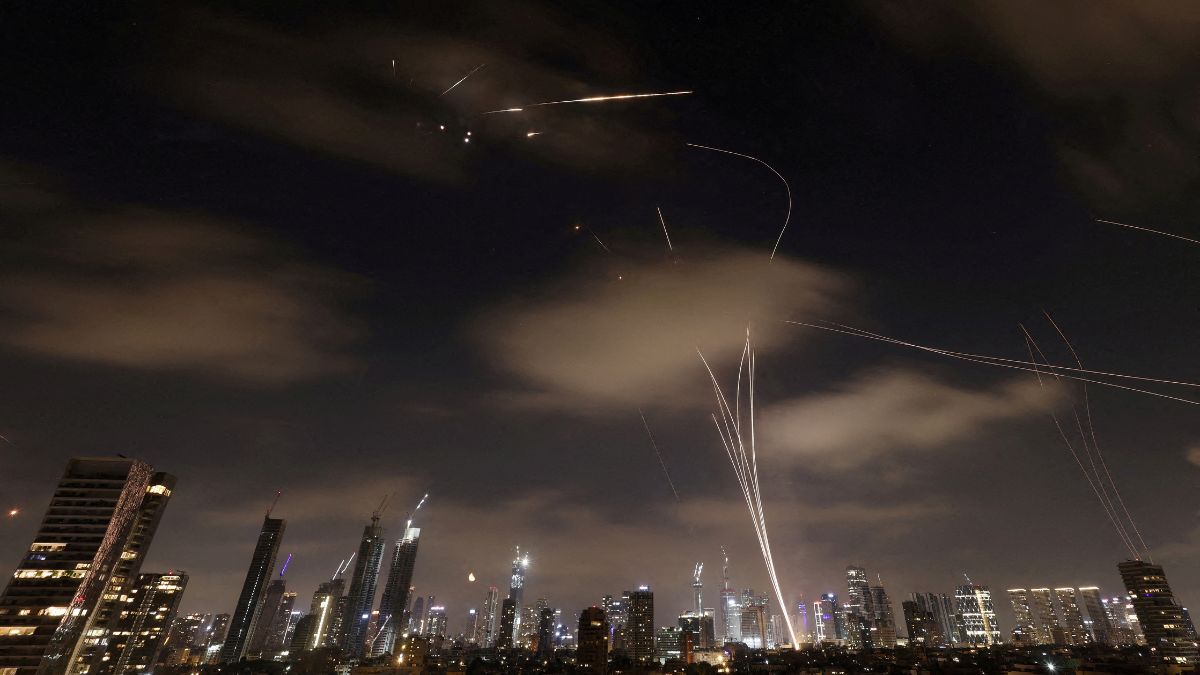The Islamic Revolutionary Guard Corps (IRGC) said that it fired a Fattah-1 ‘hypersonic’ missile at Israel.
Notably, the Fattah missile, which was first unveiled in 2023, was named by Iran’s Supreme Leader, Ayatollah Ali Khamenei.
Read Israel Iran conflict live updates here.
Dozens of Fattah-1 missiles had earlier been fired at Jerusalem during Iran’s attack on Israel on October 1, 2024.
However, this seems to be the first time the missile has been used in the ongoing conflict.
ALSO READ | First Gaza, now Iran: What two back-to-back wars will cost Israel
What exactly is the Fattah missile, and how dangerous is it? How could it impact the war in West Asia?
Let’s take a look:
What is the Fattah-1 missile? How dangerous is it?
The Islamic Revolutionary Guard Corps has called the Fattah-1 the “Israel-striker”.
At the time of its unveiling, a large banner was put up in Tehran with a message in Hebrew that read, “400 seconds to Tel Aviv.”
The Fattah-1 is Iran’s first hypersonic missile, known for its high speed, accuracy and ability to change course mid-flight. According to reports, it is designed to get past even advanced missile defence systems such as Israel’s Iron Dome and Arrow.
The term “hypersonic” usually refers to weapons that can travel within Earth’s atmosphere at very high speeds, including hypersonic glide vehicles and hypersonic cruise missiles. These are difficult to intercept because they can move at high speed and change direction quickly.
Impact Shorts
More ShortsAccording to Iran Watch, the Fattah-1 has a range of up to 1,400 kilometres. It runs on solid fuel and uses a single-stage propulsion system.
Iran says the Fattah-1 reaches Mach 5, five times the speed of sound, or about 6,100 kilometres per hour (around 3,800 miles per hour).
However, military experts say that most ballistic missiles also reach hypersonic speeds as they near their targets.
Fabian Hinz, a researcher at the International Institute for Strategic Studies, told CNN that the missile likely has a warhead placed on a “manoeuvrable reentry vehicle”, which lets it shift direction briefly during its descent to avoid interception.
But some experts are not sure if Iran actually used the missile on Tuesday night.
Trevor Ball, a former US Army explosive ordnance technician, told CNN: “It’s one of their newest ballistic missiles, and they have a lot to lose from using it.”
He added, “Israel would get an idea of its capabilities just from being used. There’s also the chance it could fail to function, giving Israel an even greater idea of its capabilities. They get free propaganda and risk nothing by saying it was used.”
ALSO READ | How an Israeli strike mid-broadcast turned an Iranian anchor into a national hero
Israel-Iran conflict: The latest developments
Israel has defended its large-scale attacks, saying they are meant to stop Iran from advancing its nuclear ambitions. At least 224 people have been killed in Iran in the strikes.
In response, Iran has fired around 400 missiles and launched hundreds of drones at Israel. So far, 24 people have died in Israel, and over 500 have been injured.
As the US deployed fighter jets to West Asia, US President Donald Trump made several remarks about the situation.
He warned Iran’s Supreme Leader, Ayatollah Ali Khamenei, that the US knows his whereabouts but added there were no current plans to kill him “at least not for now.”
Trump’s comments added to the uncertainty about America’s role in the conflict, as many in Tehran fled their homes on the sixth day of Israel’s air campaign targeting Iran’s military and nuclear sites.
ALSO READ | What are Iran’s key nuclear sites? What can destroy them?
The escalating tit-for-tat has increased fears of a full-scale war, pushing an already tense region deeper into crisis.
Israel has also claimed the killing of General Ali Shadmani in Tehran, calling him Iran’s most senior surviving military leader.
Iran has not directly responded to Trump’s statements, but its military leaders have warned that further attacks on Israel are coming.
“The operations carried out so far have been solely for the purpose of warning and deterrence,” Gen. Abdul Rahim Mousavi, the commander in chief of Iran’s army, said in a video.
“The punishment operation will be carried out soon.”
The conflict comes as Israel continues its military action in the Gaza Strip, where daily shootings have been reported around areas where Palestinians are gathering for food.
With inputs from agencies
)